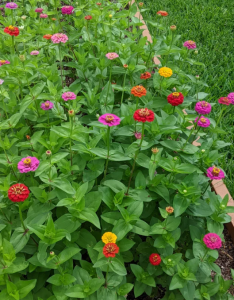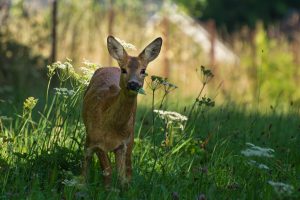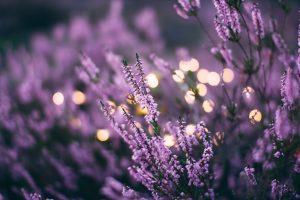Zinnias are beautiful flowers that many people like to put in their yard. They give a splash of color and can genuinely brighten up a yard!
But do deer, on the other hand, eat zinnias?
These creatures are well-known for nibbling on various plants in gardens worldwide. So, are zinnias immune to deer? Continue reading to discover.
What Are Zinnias?

Zinnias are vibrant annual flowers that come in various hues and patterns. They're one of the most popular garden flowers to grow.
Zinnias are not only attractive, but they are also simple to cultivate. They thrive in USDA hardiness zones 3 to 10. Furthermore, they can withstand periods of dryness with little additional irrigation.
Zinnias, in general, are easy to grow. You don't need a green thumb to keep these plants healthy. They come in so many varieties that creating a one-of-a-kind appearance for your landscape is simple.
Zinnias can do wonders for a home's curb appeal and fill a garden with lovely floral fragrances. However, many homeowners are often confused about the kind of animals that can eat them.
Do Deer Eat Zinnias?
While deer are not known to consume zinnias, they will most likely try to eat them if hungry.
Because these animals can't stand the smell of zinnias, they're not good candidates for repellents. The stench of zinnias is very likely to choke the deer.
Deer's eat a varied diet of healthful foods. They are herbivorous and very opportunistic, so they consume whatever they find. Some of the most famous delights are ornamental grasses, vegetables, fruits, nuts, and flowers.
Also Read: 5 Most Powerful or Best Healing Plants For Mind And Body
What Do Deer Usually Eat?
Most plants attract deer. It doesn't matter if you have a large garden full of pumpkins, ripening veggies, or a few container plants of stunning flowers. Deer come in anytime, eat on your plants, and destroy them!
The animals are known for snatching immature buds before they can blossom and fruit, making it difficult to reach the harvest stage. There are various things you can do to keep deer out. But curiosity always finds a way.
What Animals Eat Zinnia Plants?

Rabbits
Rabbits can eat your zinnia plants. While you may not see them as frequently as other animals, they are quite destructive and can ruin your entire garden.
Rabbits will nibble through the leaves and consume a large percentage of them. To keep rabbits from eating your zinnias, try trapping them with a blood meal or powdered fox urine.
Leafrollers
Leafrollers can also wreak havoc on your zinnias. Their tiny bodies and thin, copper wings make it difficult to recognize them. They can also be a concern if they go out of hand.
They will swallow the flower buds, defoliate your plants, and possibly ruin the entire plant.
Aphids
The most frequent aphids that attack zinnias are cutworms, armyworms, and leafrollers.
These insects devour the leaves of zinnias and might cause difficulties if they contaminate other plants in your yard. The easiest technique to keep aphids at bay is to keep the leaves of zinnia plants dry.
In addition, you can spray a 70% alcohol solution to eradicate aphids and other pests.
Also Read: What Are The Benefits Of Passionflower Supplements?
Deer And Zinnias: A Peculiar Relationship

Zinnias are considered to be deer-resistant, but are they foolproof? That, unfortunately, is not the case.
To be honest, no plant is. Deer loathe zinnias and will not eat them, although there are always exceptions and outliers.
Even if you have a yard full of zinnias, there's always the danger of deer eating them. Young fawns are the most willing to try new things. In many situations, zinnia aversion develops after a first taste.
Do Deer's Always Eat Zinnias?
People have sometimes observed a juvenile deer trying to eat the blossom before concluding it's not for them!
In other circumstances, deer do not have any issues with its flavor. Younger zinnia flower buds lack the intensity of taste seen in mature plants. As a result, it's not unusual to observe deer nibbling on the buds before they blossom.
Zinnias are unlikely to be eaten by the deer on your land(probably). However, consider combining the zinnias with another repellent to add an extra layer of protection against these creatures.
Your best hope is to use odor-based repellents and physical barriers.
Also Read: Real Flower Resin Jewelry: How It’s Different, And Where To Find It
What Are The Best Deer Resistant Plants?
So you have used Zinnias, and it didn't work!! Well!! Don't worry!! We have other plants that would surely help you resist Deer!

Lavender
- Deer and other creatures rarely eat Sweet Romance lavender's finely textured, aromatic, fuzzy leaves.
- Pick a few branches to bring indoors if you enjoy its rich, sweet aroma.
- This type of flower has a notably extended blooming period, with rich violet-purple flower wands produced continuously from early summer to fall in whole light.
- Once planted, it is pretty drought-resistant.
Ornamental Grasses
- Ornamental grasses' coarsely textured leaves keep them out of the jaws of deer hunting for more succulent food to consume.
- Grasses also provide refuge for them and other small animals throughout the autumn and winter months.
- Proven Winners provides a variety of native and non-native decorative grasses, each with its advantages.
Spike Speedwell
- Veronica's finely textured leaf and slender flower spikes put it toward the bottom of the menu for deer searching for plants with more substance to fill their appetites.
- Gardeners can safely grow swaths of vibrant purple, pink, or white veronicas in their sunny to moderately shaded settings.
- Their harvest begins in early June. Pests like bees, butterflies, and hummingbirds feast on their blossoms for several weeks.
False Indigo
- Decadence fake indigo blooms in late spring to early summer, with colorful spires of blue, purple, yellow, pink, maroon, cream, and bicolor flowers that you and pollinators will enjoy.
- As the plants develop, they become thicker and produce more blooms, and they can last for 50 years or more in the landscape.
- When planting, choose a permanent location since their deep tap root, which makes them drought tolerant, also makes them difficult to move.
Final Thoughts
While deer will eat zinnias, they usually don't repeat the mistake more than once. These deer-resistant plants are frequently effective in discouraging these creatures from snacking in your yard, especially if you plant them to protect other crops!!
























